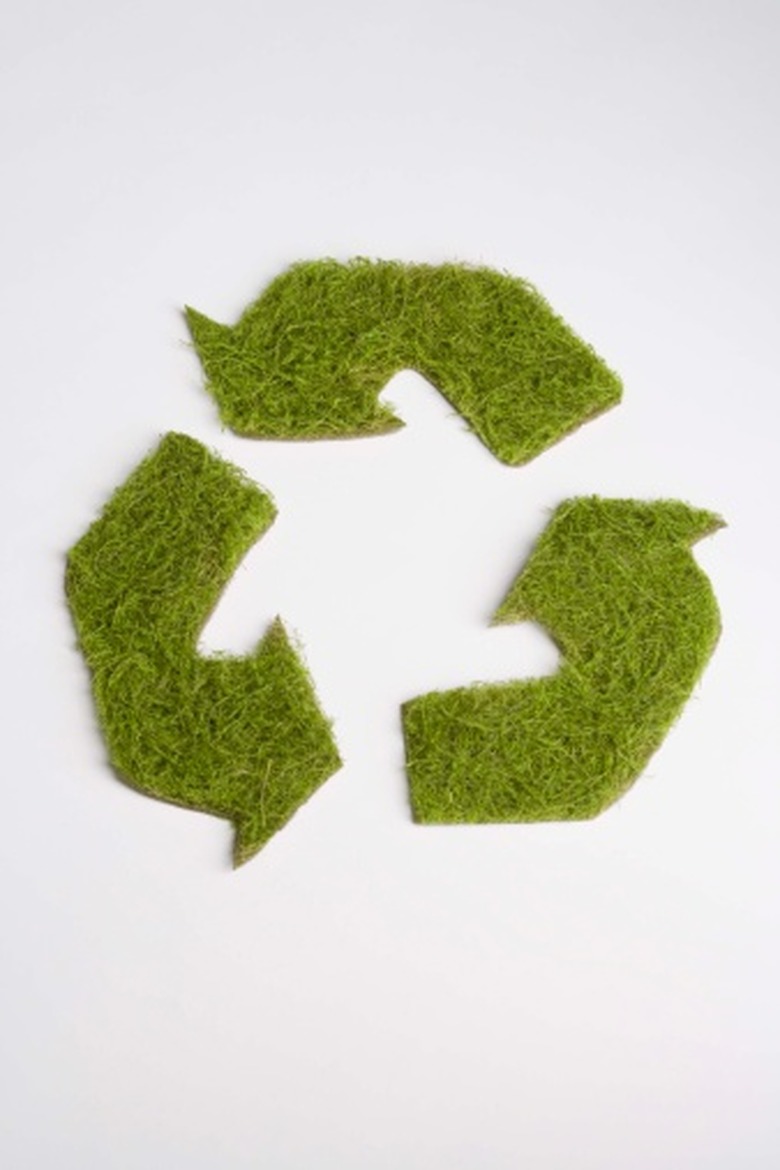Things Made Out Of Waste Materials
The creation of waste material is among the major threats to the environment and a worldwide challenge for environmentalists. Landfills continue to grow as more of the world's people regularly purchase disposable goods. Some products can make effective use of waste materials, recycling them into things that are new and useful. This gives waste materials a second purpose and keeps them from ending up in a landfill.
Recycled Paper
Recycled Paper
Many new paper products use waste paper, cardboard and wood in their manufacture. These products usually include a notice that states their post-consumer recycled content, or the percentage of the paper that comes from a waste source, with the remainder coming from new material. Everything from book pages and newspapers to paper bags and shipping boxes come from waste paper that manufacturers convert to pulp and then reuse. To make the paper suitable for printing, manufacturers add a bleaching agent and fresh paper pulp.
Biodiesel Fuel
Biodiesel Fuel
Biodiesel fuel is an environmentally attractive means of powering automobiles. It comes from the used oil that restaurants and food service companies produce when they cook large quantities of food. Biodiesel fuel puts that oil, which originally comes from animal and plant sources, into an engine that can burn it instead of petroleum-based fuel. Most conventional diesel engines can burn biodiesel without any modifications, and gasoline-powered vehicles can use biodiesel fuel after undergoing an engine-conversion process.
Playground Surfaces
Playground Surfaces
Modern playgrounds use synthetic ground surfaces that make use of plastic and rubber waste materials. Many different companies turn old tires into rubber mulch, which can be used to create soft, safe play surfaces that come in a wide range of colors. Artificial turf, which is used to replace natural grass in indoor stadiums, provides the option of low-maintenance sports fields; it is made from repurposed plastic waste, such as plastic shopping bags.
Aluminum Cans
Aluminum Cans
The aluminum cans that line grocery store aisles often come from recycled cans. Aluminum cans are among the most valuable beverage containers from a recycling perspective. Besides eliminating waste aluminum, recycled aluminum cans also eliminate the need to mine and smelt additional aluminum, which are energy-intensive processes.
Cite This Article
MLA
Hartman, Dennis. "Things Made Out Of Waste Materials" sciencing.com, https://www.sciencing.com/things-made-out-waste-materials-7616872/. 24 April 2017.
APA
Hartman, Dennis. (2017, April 24). Things Made Out Of Waste Materials. sciencing.com. Retrieved from https://www.sciencing.com/things-made-out-waste-materials-7616872/
Chicago
Hartman, Dennis. Things Made Out Of Waste Materials last modified March 24, 2022. https://www.sciencing.com/things-made-out-waste-materials-7616872/
